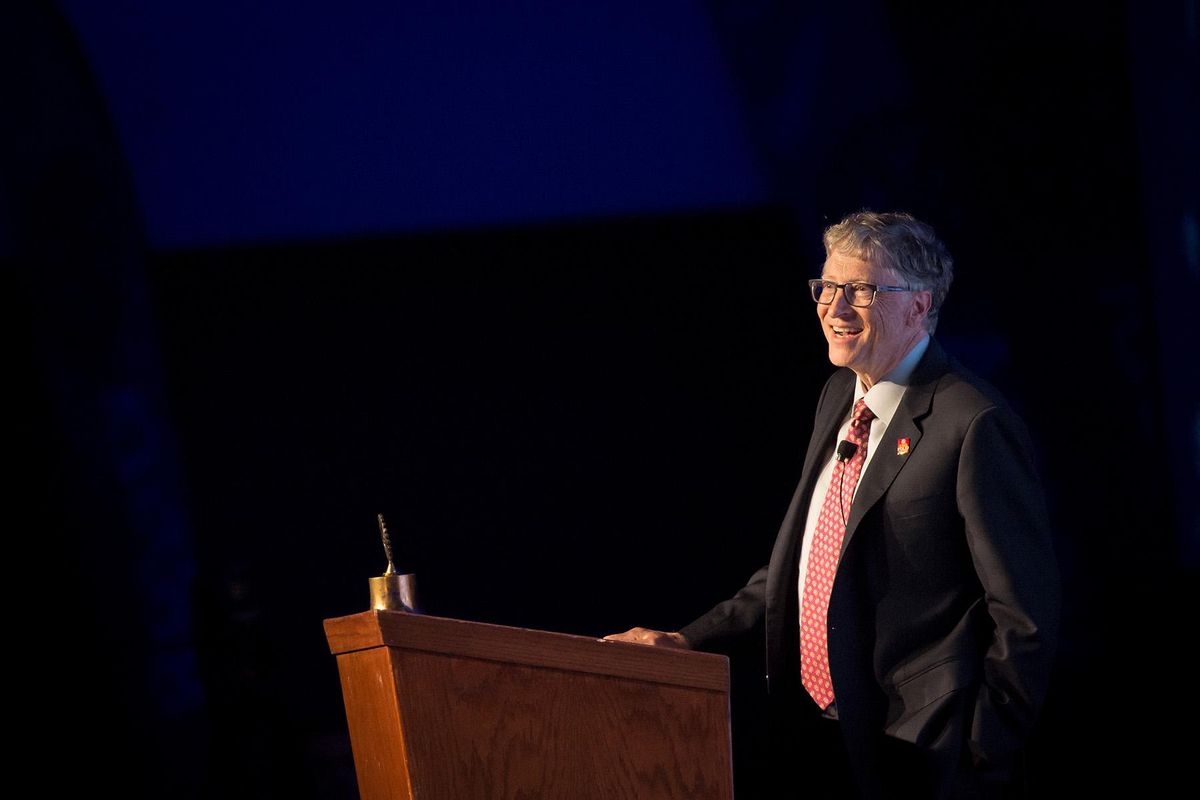Bill Gates brings message of hope for total eradication of polio to Rotary International conference in Spokane

A goal that seemed nearly impossible just decades ago is now within reach: total eradication of polio.
In 1994, the highly infectious disease that paralyzes those affected for life and often leads to death was wiped out from the Americas.
“That was pretty exciting,” said Bill Gates, speaking to a crowd of about 750 Rotary members from Seattle, Eastern Washington, Idaho and Canada on Saturday at a Rotary International district conference at the Spokane Convention Center.
Ridding polio from the Americas was a first step toward total eradication of the disease. Only three countries are dealing with it now: Pakistan, Afghanistan and Nigeria.
But Gates, who co-chairs the Bill and Melinda Gates Foundation, is one member of the Global Polio Eradication Initiative, a group dedicated to bringing an end to the disease. But they still need to raise $3.3 billion for the final push, Gates said.
Gates displayed before the crowd a slide show of world maps showing polio’s shrinking presence.

“Not that long ago, in 1988, polio was everywhere,” he said. “It’s estimated 350,000 new cases were caused every year. Think of that many kids paralyzed.”
There were 33 cases last year worldwide, Gates said.
Gates warned that if polio isn’t eradicated, and if funds dried up, it could make a resurgence over the next several decades, and could roar back to 200,000 cases, he said.
Nigeria is soon to join the list of polio-free countries, Gates said.
The last case in Nigeria was recorded a few years ago, and reaching the three-year mark will mean it’s officially eradicated.
“We’ve come a long ways,” he said.
Gates recalled a 2010 visit to northern India, where polio would soon be eradicated.
“In India, we were so close but it would keep bouncing back in different places,” he said. Part of that was due to poor sanitation, skepticism of the vaccines and difficult access to villages because of flooding or other unforeseen problems.
“Our partners had to step up and really get the word out,” he said. “It took 2 million vaccinators to cover all of India.”
India is now celebrating its fifth year of being polio-free.
Gates said Nigeria has been a challenge. Workers helping vaccinate were stuck with inaccurate maps, causing them to assume areas were vaccinated when they weren’t.
But new technology, developed with Gates’ help, has been making improvements. To test villages in the past, workers had to find children who were paralyzed and test them individually. Now, they can take bucketloads of a village’s combined sewage and test it to see if anyone is shedding the polio virus, Gates said.
And when polio is finally eradicated, all of the technology and resources will be able to shift to fighting other diseases.
“People are wondering: When will we get it done?,” he said. “That’s a very good question. We’re very very close.”
This article was corrected to accurately state the number of new polio cases in 1988.